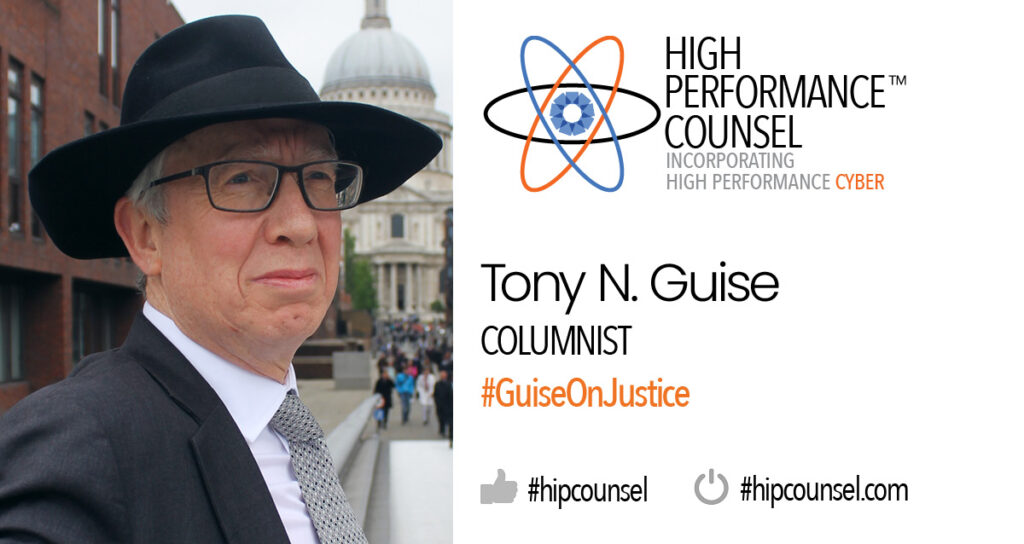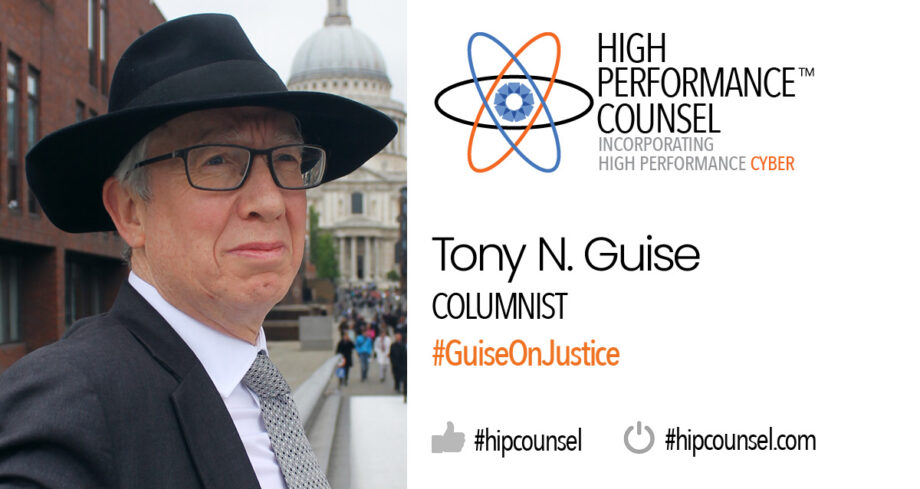July 2021
The acronym KISS stands, as most will know, for Keep It Simple Stupid and was most recently employed, in the context of civil justice reform, by Lord Justice Haddon-Cave when he delivered the Gray’s Inn Reading for Gresham College on 17 June 2021. Entitled “English Law and Descent into Complexity” (https://s3-eu-west-1.amazonaws.com/content.gresham.ac.uk/data/binary/3607/2021-06-17-1800_HADDON-CAVE_ComplexityLaw-T.pdf). The central themes of His Lordship’s erudite talk were the need to reduce the complex to the simple, change the opaque to the transparent and to cut a swathe through the tangled briar of English and Welsh civil procedural rules.
His scythe of choice (to possibly overextend the metaphor) is the Modernisation Programme that is digitising the civil courts, tribunals and Family Courts in England and Wales. In this way, he argued the Rule of Law would be enhanced by enabling the citizen to know/learn his or her rights and obligations and a national economy made more prosperous by enjoying clarity and certainty around rules with ease of access to prompt resolution of disputes. A point also well made, repeatedly, by the Master of the Rolls.
English and Welsh civil procedural rules are contained within the so-called White Book which, after the last serious attempt to reduce and rationalise procedure, was promulgated in 1999 as a svelte, single volume entitled, appropriately, the Civil Procedure Rules (or CPR – not a form of medical treatment though reading the White Book might induce cardiac related issues).
21 years later the White Book has turned into a morbidly obese two volumes, with annual supplements and at least 2 updates every year; indeed a significant part is only published online. For citizens unable to afford a lawyer’s support there is a Handbook to explain all of this weighing in at 170 pages and not revised since it was published in 2013, roughly 8 updates ago.
Lord Justice Haddon-Cave acknowledges the problem of the Law’s natural ossification and opines:
“The best hope for simplification is in starting again with a new way of conducting litigation, as with the On-line Court, and trying to make the whole process, as well as the related rules, as simple as possible from the outset…….The government must engage with the public and understand their needs…”
But this plea for user-engagement has until relatively recent times fallen on deaf ears so far as the Government agency developing the system is concerned, Her Majesty’s Courts and Tribunals Service (HMCTS). Nor is there any meaningful data collection being undertaken from the platforms built by HMCTS as data was very much an after-thought which will now have to be retro-fitted, if it ever happens. In truth, the Modernisation Programme began and continues to render in digital form the existing procedures set out in the White Book. Any hope of that programme finishing may have to be abandoned as the funding ran out in December 2019. Negotiations with HM Treasury for further funding took place in October 2020 with a vague promise to “consider” further funding.
This slough of despond may mend.
HMCTS has regularly turned to the private sector to solve pressing needs. The CE-File system used increasingly widely throughout civil jurisdictions in England and Wales is Thomson Reuters’ C-Track platform. The latest deployment goes live in the Upper Tribunal of the Lands Chamber for cases issued on or after 28 June 2021 (https://www.judiciary.uk/publications/upper-tribunal-lands-chamber-practice-note-issued-by-mr-justice-fancourt-chamber-president-on-25-june-2021/?utm_medium=email&utm_source=).
In 2013 the insurance industry created what is now called The Claims Portal as a platform to settle particular types of personal injury claims.
On 31 May 2021 HMCTS launched another settlement platform, again funded by the insurance sector, called Official Injury Claim (OIC). For which Litigants-in-Person are provided with a 64 page guide to using the platform. This is not exactly the digital, intuitive system that should be provided but it is, at least, a start.
These privately built platforms are unconnected, as if HMCTS is part of a digital archipelago. In fact it is this aspect of what has been built so far that introduces complexity not simplicity, a wondrous irony given LegalTech offers the opportunity to simplify. There are so many platforms most citizens, and I suspect many lawyers, may be confused as to which apply and when. What for example does one do if a whiplash injury claim involves multi-parties one of whom is a child? The OIC does not cater for infants. By which platform is such a mixed claim to be brought? Many will simply become lost in the channels between the digital islands.
Lord Justice Haddon-Cave had some thoughts about how we may approach bridging the gaps created by our digital archipelago when he observed “we might also usefully look abroad for inspiration as to how best to do this.”
He is right to make that suggestion. In February 2021 Manhattan in New York City deployed a system, supplied by a private sector provider that enables access to the Courts only after engaging with a tiered dispute resolution process beginning with ad hoc negotiation and then exploring other options such as neutral evaluation and mediation. Truly litigation is the last resort in Manhattan.
The Civil Resolution Tribunal of British Columbia (CRT) is a world-leader in this approach. The CRT began digitising condominium disputes and growing to encompass other types of claim. Always engaging users and collecting data to inform the next step along the way. Brazil is also making great strides.
The Master of the Rolls’ vision is of a modernised civil justice system connected by private sector solutions providing a range of dispute resolution processes which, as a last resort, integrate with the civil courts by using APIs to transfer case data into HMCTS’ platforms. The private sector has already overcome most of the issues HMCTS are now encountering (e.g. providing for multi-party cases) and APIs are meat and drink to us. Platforms such as DisputesEfiling.com already have a pre-action module and provide panels of ADR neutrals supported by DEF’s platform. As to guidance, sites such as the Small Claims Portal provide lots of resources both digital and human to pilot both the unaware and the unwary through the digital archipelago.
We have the tools and we shall finish the job!

Tony Guise is the Director of DisputesEfiling.com the specialist provider of ADR management platforms. He is a Past President of the London Solicitors Litigation Association and former member of the Civil Justice Committee of the Law Society of England and Wales.



Leave A Comment?